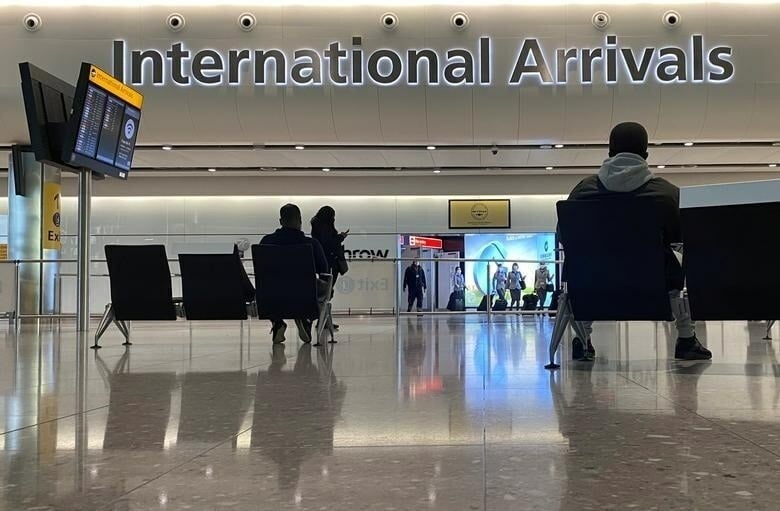(ITALY) A nationwide transport strike is set to disrupt travel across Italy on November 28, 2025, with unions calling for a 24‑hour walkout over pay and in protest at the war in Gaza. Many rail users — including foreign visitors and migrant workers — face cancelled or heavily reduced services. The action, which hits both regional and long‑distance trains, focuses strongly on Trenord, the main operator in Lombardy, and is expected to spill over into local public transport systems in several cities.
When the strike runs and who it affects
The strike runs from 9:00 PM on November 27 to 9:00 PM on November 28, covering an entire working day and two evenings. It comes at a time when winter travel and year‑end migration flows usually increase.

Trenord has confirmed that its regional, suburban, airport, and long‑distance services will all be affected. This means:
- Commuters, international students, seasonal workers, asylum seekers traveling for appointments, and tourists holding short‑stay Schengen visas could be stranded or forced to change plans at short notice.
- Local public transport systems in several cities may also be disrupted, increasing the knock‑on effects.
Guaranteed (minimum‑service) train windows
Despite the broad shutdown, only a limited number of trains are guaranteed to run under Italy’s minimum‑service rules. On November 28, Trenord plans to guarantee just two narrow time windows for protected travel:
| Window | Timeframe |
|---|---|
| Morning protected window | Depart after 6:00 AM and arrive by 9:00 AM |
| Evening protected window | Depart after 6:00 PM and arrive by 9:00 PM |
Outside these three‑hour slots, passengers are warned that connections may be cancelled, delayed, or replaced by buses, and that even confirmed reservations may not hold.
Airport links — special concerns
Airport links are a particular concern for people entering or leaving Italy, including non‑EU travelers with time‑limited visas who must exit the Schengen Area before their permission expires.
- Trenord has said that, during the strike, trains to Malpensa Airport will be replaced with direct buses between Milan Cadorna and Malpensa Airport, and between Stabio and Malpensa Airport, without intermediate stops.
- Travelers who typically rely on intermediate stations to connect from smaller towns will need to plan extra legs of their journey or risk missing flights.
Political context and wider implications
The disruption comes against the backdrop of growing political tension in Italy over the conflict in Gaza. Parts of the labor movement are linking wage demands to broader calls for a ceasefire and a change in Italy’s foreign policy stance.
Union leaders have framed the day as both a protest against real‑term wage erosion and a stand against civilian casualties in Gaza, turning what might otherwise be a domestic pay dispute into a strike with a strong international and humanitarian message. This dual focus is likely to draw attention not only from Italian residents but also from Palestinian, Israeli, and other Middle Eastern diaspora communities living in Italy.
The strike’s political dimension may increase the scale and visibility of protests around transport hubs and could sustain attention beyond a simple service disruption.
Local public transport and access to services
Local public transport strikes on the same day add a second layer of uncertainty.
- In Bolzano, workers are expected to walk out, affecting buses and possibly trams where present.
- For migrants and asylum seekers housed in reception centers outside city centers, this can create barriers to reaching immigration offices, legal aid clinics, or court hearings.
- Italian authorities rarely offer blanket exemptions for missed appointments during strikes; lawyers often advise clients to leave many hours earlier or, if possible, reschedule.
Immigration consequences — what can go wrong
According to analysis by VisaVerge.com, transport disruption on this scale can have indirect immigration consequences, especially for people required to appear in person to maintain their legal status.
Potential issues include:
- Missed biometric appointments
- Delayed residence permit collection
- Failure to attend an asylum interview because a Trenord train did not run
A missed appointment may complicate a case even if the person acted in good faith. While Italian officials can show flexibility, that usually depends on:
- Clear proof of the disruption
- Prompt efforts to rebook or reschedule
Practical steps for travelers and non‑Italian citizens
Travelers are being urged to use every available information channel as the strike unfolds. Trenord and other operators recommend checking official apps, station announcements, and company websites shortly before departure, since services may be restored or further reduced depending on staff participation.
For non‑Italian citizens, especially those on tight travel schedules linked to visa expiry dates, practical steps to reduce risk include:
- Carry copies of travel bookings, including any reissued train or bus tickets.
- Allow extra time to reach airports or consulates, planning for missed connections.
- Keep proof of disruptions, such as screenshots from Trenord’s app showing cancellations.
- Contact airlines and, if needed, consulates early if it becomes clear a flight may be missed.
Important: Italian authorities generally expect foreign travelers to comply strictly with Schengen stay limits, but documented evidence of strike‑related disruption can be helpful if questions arise at the border.
The Italian Ministry of Foreign Affairs provides official travel and consular information, including contacts for embassies and consulates, on its website at Italian Ministry of Foreign Affairs, which can be a key resource for stranded visitors needing urgent assistance.
Specific groups at heightened risk
The timing of the strike — late evening to late evening — also affects:
- Night workers
- People traveling for family reasons (e.g., visiting relatives in hospital)
- Attendees of immigration integration classes offered in different cities
Migrant workers, who often have less job flexibility and limited savings for last‑minute hotels or alternative transport, can be among the hardest hit when trains stop running.
In Milan and the wider Lombardy region, where Trenord is the main operator, the impact will be especially strong. This area is a major hub for new arrivals, including:
- International students enrolled at universities
- Researchers on temporary permits
- Workers holding EU Blue Cards or national work visas
A cancelled suburban or regional train can mean missing a residence‑permit appointment that took months to secure, with knock‑on effects for employment or enrollment.
Public reaction and activism
The link to Gaza has drawn in activists who see transport hubs as symbolic spaces. Previous protests in Europe have targeted ports, airports, and logistics routes to increase pressure on governments. Unions combining pay demands with Gaza‑related protests are likely to bring the issue into everyday conversations on platforms and buses.
- Some passengers may sympathize with calls for a ceasefire but still resent being stuck far from home or work.
- Others may actively support the strike’s humanitarian message, increasing tensions at hubs and stations.
Key takeaway and final advice
As November 28 approaches, the main advice from transport operators and immigration lawyers is simple: treat the strike as certain, not hypothetical, and plan travel in Italy with generous margins of time.
- Keep detailed records if appointments are missed.
- Seek updated guidance quickly.
- Use official information channels and prepare contingency plans.
The day‑long halt — driven by pay disputes and anger over the war in Gaza — shows how events far from Italy’s borders can shape the journeys of everyone who relies on a Trenord train or a local bus to keep their lives moving.
On November 28, 2025, Italian unions held a 24‑hour transport strike affecting Trenord’s regional, suburban, airport and long‑distance services. Only two three‑hour protected windows (6–9 AM and 6–9 PM) were guaranteed. Malpensa airport links were replaced by direct buses from Milan Cadorna and Stabio. The strike mixes pay demands with protests over Gaza, risking missed biometric appointments, residence‑permit collections and flights. Travelers should check official operators, keep documentation of disruptions, and allow extra time for crucial appointments.













